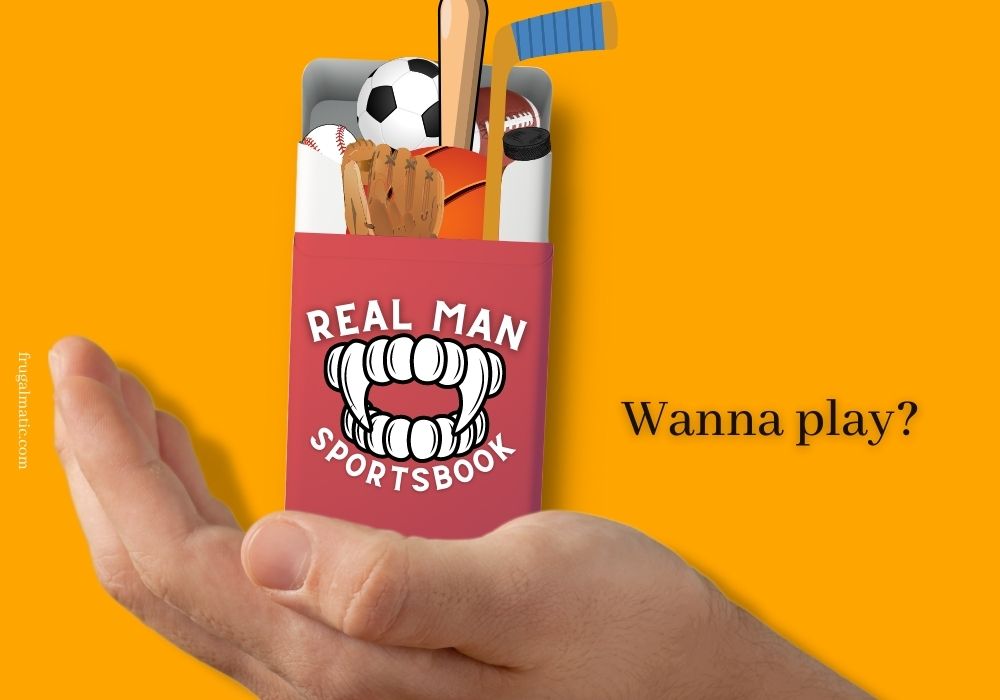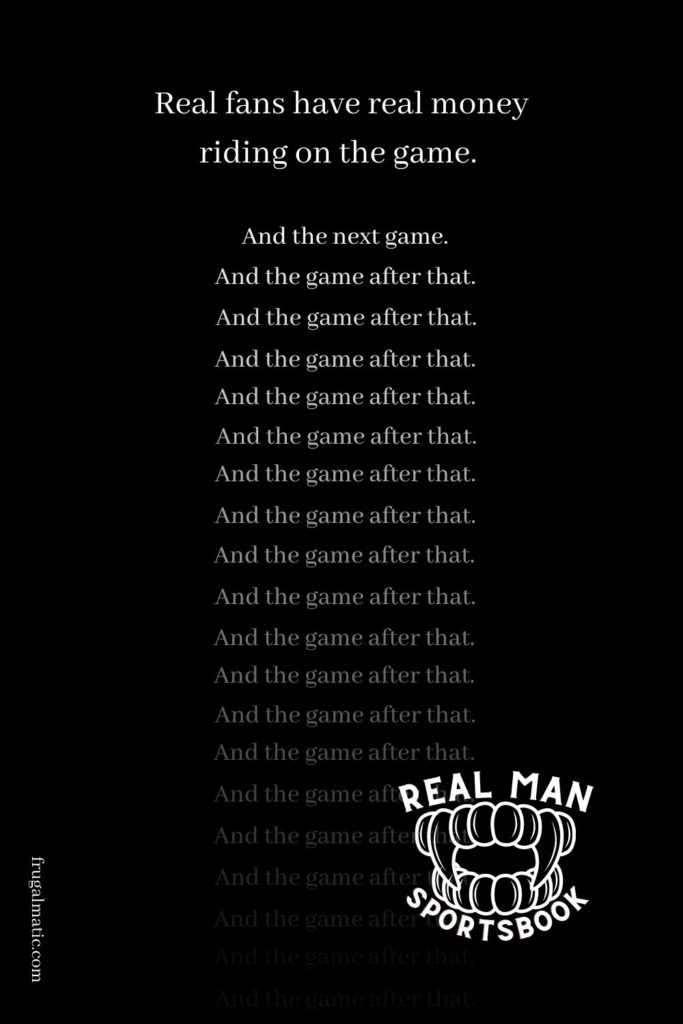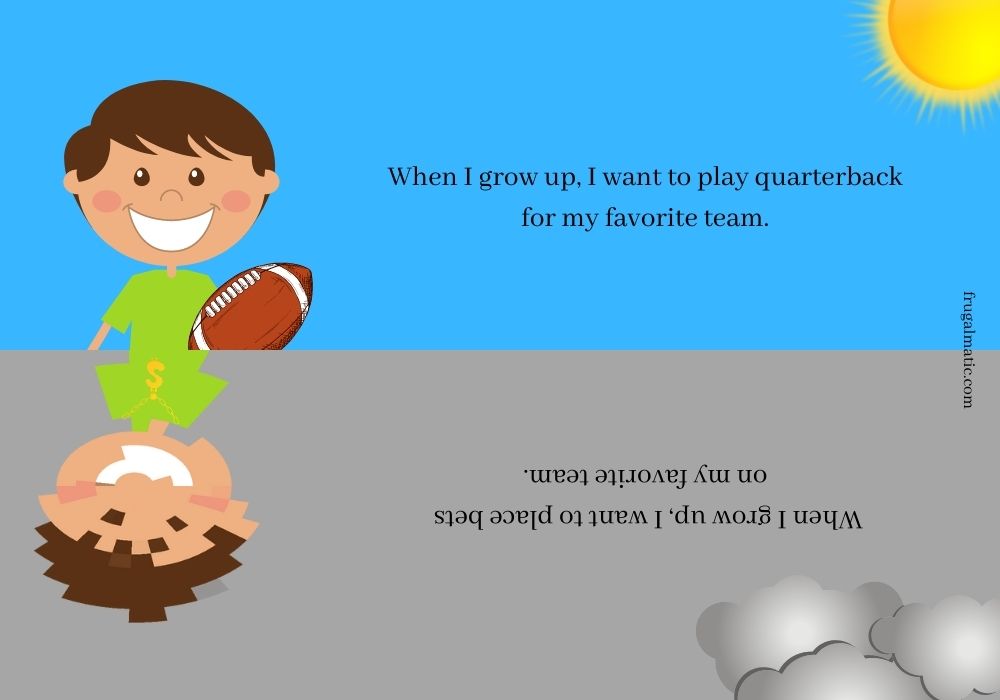This post was last updated on July 13th, 2022 at 09:44 am
The first time I saw a television commercial for sports betting I was watching a Green Bay Packers game with our two kids, both in elementary school. I was downright disgusted. I couldn’t believe watching an NFL game now came at the price of exposing our kids to messages seeking to normalize betting. What’s worse, many companies offer “risk-free” bets or extra money to draw in new customers. As a parent, I’m left to wonder: How can we protect kids from the aggressive marketing tactics of this burgeoning industry?
Whether it’s the NFL, NBA, or MLB, the line between entertainment and gambling is blurring, a process some experts refer to as “gamblification.” It took off in 2018, when the U.S. Supreme Court struck down a federal law that had largely confined legal sports betting to Las Vegas.
As a result of this ruling, professional sports have started to feel more like horse racing, except with men running around fields and courts instead of riding around a track. And if you doubt it, consider that Capitol One Arena in Washington, D.C., became, in May, the first arena in the U.S. to open a sportsbook within its walls. A month later, Caesars Entertainment struck a deal to rename the home of the New Orleans Saints to the Caesars Superdome.
The dominoes are falling quickly.
Sports betting goes mainstream: Enter Peyton Manning
It’s happening so fast that I’m having a hard time processing what it means not only for our two kids but all of society. What was once commonly viewed as a shady enterprise has become semi-reputable, apparently reputable enough for people considered reputable such as former NFL quarterback Peyton Manning to endorse it.
I was a bit stunned to see him, his dad, and his brothers appear together in a commercial for Caesars Sportsbook during the Green Bay Packers-San Francisco 49ers game Jan. 22. In the ad, they sat around a gold-decorated Caesar and a scantily-dressed Cleopatra, joking with each other. The punch line came when Caesar declared the fun-loving Cooper Manning his favorite “Caesar.”
Maybe it was funny, but the parent in me wasn’t laughing. (I also wasn’t laughing when NBC aired this same commercial during an Olympics figure skating competition. No sport is immune from Manning’s pitch, apparently.)
Largest gambling expansion in U.S. history
Despite feeling alarmed about these ads, I’ve seen scant news coverage about the potential consequences, with the notable exception of a Jan. 14 story in the Washington Post. The article quoted Keith Whyte, executive director of the National Council on Problem Gambling, and I was happy to see he shared many of my concerns.
I decided to reach out to Whyte to learn more about his perspective. He left no doubt in my mind that much more needs to be done to curb the sports betting industry’s influence, especially on youth.
“By any metric, this is the largest and the fastest expansion of gambling in our history,” Whyte told me in an interview.
Calls to problem gambling helpline surge
The council offers a hotline to help people with gambling problems. From January 2020 to January 2021, calls to the hotline increased by 77%, while texts to the hotline increased by 115%, Whyte said. Many of the calls come from the parents and friends of older teens and young men who’ve developed sports betting problems, he added.
The scary part is, this is only the beginning of the surge. It’s likely to get a lot worse before it gets better because the expansion is happening in a Wild West-like environment, with regulations varying from state to state. Unlike with buying alcohol, there’s not a uniform gambling age, Whyte noted. In less than three years, more than 30 states have legalized sports betting, with many allowing online betting options.
“If we had built a really comprehensive gambling addiction prevention infrastructure, we’d have far less concern about the expansion of sports betting,” Whyte said. “But we kind of dilly-dallied around. Governments didn’t take it seriously. The gambling industry didn’t take it seriously. And now, the social safety net is not nearly in the condition it needs to be.”


Parents vs. the sports betting industry: A messaging battle
Ultimately, the responsibility of prevention falls on parents. We must help our children separate live sports from sports betting, even as the leagues, television networks, and sportsbooks seek to intertwine the two experiences.
To protect kids, we need to understand how the sports betting industry brings in new customers. For advice on this issue, I turned to Jamie Torrance, a psychology doctoral researcher for the Addictions Research Group at the University of South Wales. He holds up the United Kingdom as an example of how not to manage sports betting. Sports betting advertising is rampant there, to the point that many gamblers themselves feel overwhelmed by it, Torrance said.
Torrance helped conduct a study on the perceptions of gambling advertising within the U.K. and discovered that gamblers are sensitive and vulnerable to these ads. One respondent, described as a 25-year-old who gambles monthly, said the advertising feels “quite cruel and unethical at present. Lots of promo deals and ‘new customer deals’ are designed to lure in mostly men who are trying to find their way and prey on human nature to get people addicted.”
An 18-year-old respondent said, “Until I started losing and realizing what a mess gambling was getting me into, the ads were making it all look so easy to earn quick cash as a guaranteed win.”
To be sure, I don’t want our kids to learn the hard way like this 18-year-old in the study. I want to prevent a gambling problem, not react to one.


Tip No. 1: Talk to your kids about sports betting ads
Just like with any other risky behavior, the key is to start early talking to kids about sports betting and other forms of gambling. When I see these ads now, I point them out to our kids. We talk about ads, in general, and how they seek to influence us. Sports betting ads can make us feel like gambling is an exciting and easy path to wealth. For example, in the Peyton Manning ad, there’s a lot of symbolism in Caesar’s gold glasses and gold chains. It associates sports betting with riches—and winning. In the ad, when Caesar says we’re “all Caesars,” he means we can share in his wealth. We can be like him. We can be winners, too. But there’s the rub: Sportsbook companies make money when we lose. Ultimately, Caesar is selling a false image of wealth.
My hope is that, through these discussions, our kids will be able to identify and resist persuasion tactics employed by marketers. In the grand scheme, maybe they’ll begin to see consumerism as an extension of marketing itself.
Tip No. 2: Point out gambling-type mechanisms in non-betting games
Torrance recommends parents broaden their concept of gambling to include gambling-type mechanisms found in non-betting online games. Many online games require players to pay real money in order to obtain digital items needed to “advance” within games. “That isn’t explicitly gambling, but it’s those gambling-type mechanics that parents need to watch out for,” Torrance said. “The more a person engages with these types of things, the more they become used to depositing their money into this digital environment for their own personal gain, which is essentially what gambling is.”
Unfortunately, smartphones have greatly complicated the job of parents. It can be difficult for parents to tell how their kids, especially older teens, are using smartphones. Torrance wrote a piece for The Conversation about the gambling industry’s sophisticated marketing techniques. He writes “the use of online demographic and behavioural data to market potentially addictive products such as gambling raises ethical concerns. There is some evidence of a dose-response effect, which means the more you are exposed to something the more you are likely to be affected by it. Exposure to more gambling advertisements could mean an increase in engagement with gambling.”
Back in my days as a teenager and 20-something, it required an effort to become a problem gambler. You had to travel somewhere to buy a lottery ticket or place a bet. Years ago, Wisconsin had dog tracks, and a group of us would go once or twice a year. But it was 50 miles away, and the trip required planning. Even if I had wanted to bet on races more than that, there just wasn’t the opportunity. You couldn’t simply download an app and digitally deposit money. The friction-free nature of gambling today makes talking to kids about the dangers of gambling all the more important.
Read: Giving up your smartphone comes with big rewards
Tip No. 3: Seek to separate manhood from sports betting
Poker nights were the primary method of gambling when I was in high school. We would bring our loose change to someone’s house on a Friday or Saturday night (I carried mine in an old Hershey’s Cocoa tin). If the pot reached $20, that was a lot. However, poker nights were never really about the money. In retrospect, they were a way for us to spend time together and, as much as anything else, feel like men as we navigated through our adolescent insecurities.
Many sports betting ads show a keen awareness for this association between manhood and gambling. “Everything they do in the sports betting realm, or the vast majority of things they do, are aimed at young men,” Torrance told me. “Very, very few of the adverts have anything to do with feminine-orientated content. It’s very masculine orientated.”
As parents, we can encourage our sons to seek out healthier expressions of manhood. At the very least, we should reject the idea that sports betting is somehow a rite of passage in becoming a man. In my opinion, severing that link between manhood and gambling would go a long way toward discouraging sports betting among young men. Of course, altering concepts of manhood is not something you do in a single chat. I’m talking about an entire cultural shift, which doesn’t happen overnight.


‘Yeah, we’re conducting a massive social experiment on these kids’
The truth is, there’s no simple way to combat the rise of sports betting and gambling. It’s becoming so pervasive and cleverly marketed that I fear all levels of organized sports—from youth to college to professional—will become tainted to different degrees.
I put my concerns to Whyte of the National Council on Problem Gambling like this, “Where does this put kids, because they’re the ones that are going to grow up seeing all this stuff? It seems like there’s no real way to shield them from this (sports betting influence) at this point.”
His response was, “Yeah, we’re conducting a massive social experiment on these kids. And outside of organizations like ours and a few others, there are very few people who are doing much to address the potential wave of youth interest in and access to sports betting.”
Is there a silver lining?
If there is a silver lining in all of this, Whyte highlighted one potential positive development. By bringing sports betting into the open, it might be easier for parents to discuss it with their kids.
“The hope is, though, that if gambling becomes more normalized in our culture, we’ll start to see this a little more like alcohol,” Whyte said. “You might have a great opportunity to have a teachable conversation with your kid’s little league team if you’re taking them to the ballpark.”
Also, the leagues and sports betting companies have produced ads focused explicitly on responsible gambling, and Whyte said his organization advised in the creation of such an ad appearing during the Buffalo Bills-Kansas City Chiefs game Jan. 23. And as obnoxious as I found Peyton Manning’s sportsbook endorsement, he also appears in a different ad about responsible betting. There’s also a website parents can check out called responsibleplay.org.
Bottom line for parents: Get ahead of the coming sports betting addiction crisis
Yes, the sports betting industry recognizes gambling can be addictive, but it’s a classic fox-guarding-the-hen-house situation. They’re the ones feeding the addiction and profiting from it. My prediction is the industry’s “responsible gambling” efforts will fall woefully short, and a sport betting addiction crisis will consume the United States within the decade. Parents and Congress alike will start howling, and eventually we might see meaningful regulations enacted.
But until that howling happens (if it ever does), parents such as myself are on their own. We’re not going to stop this crisis. It’s way beyond our control. But we can work to protect our own families and kids. We can educate our own kids and teens to help them avoid becoming victims of aggressive sports betting marketing. We can help them grow up to understand that they don’t need to place a bet to enjoy professional sports.
My hope is for our kids to view sports betting as uncool and wasteful, and for them to know gambling problems can upend lives and bring financial ruin. That’s not the kind of message the leagues, networks, and sportsbooks want us to hear. But it’s the message that we as parents should deliver.

